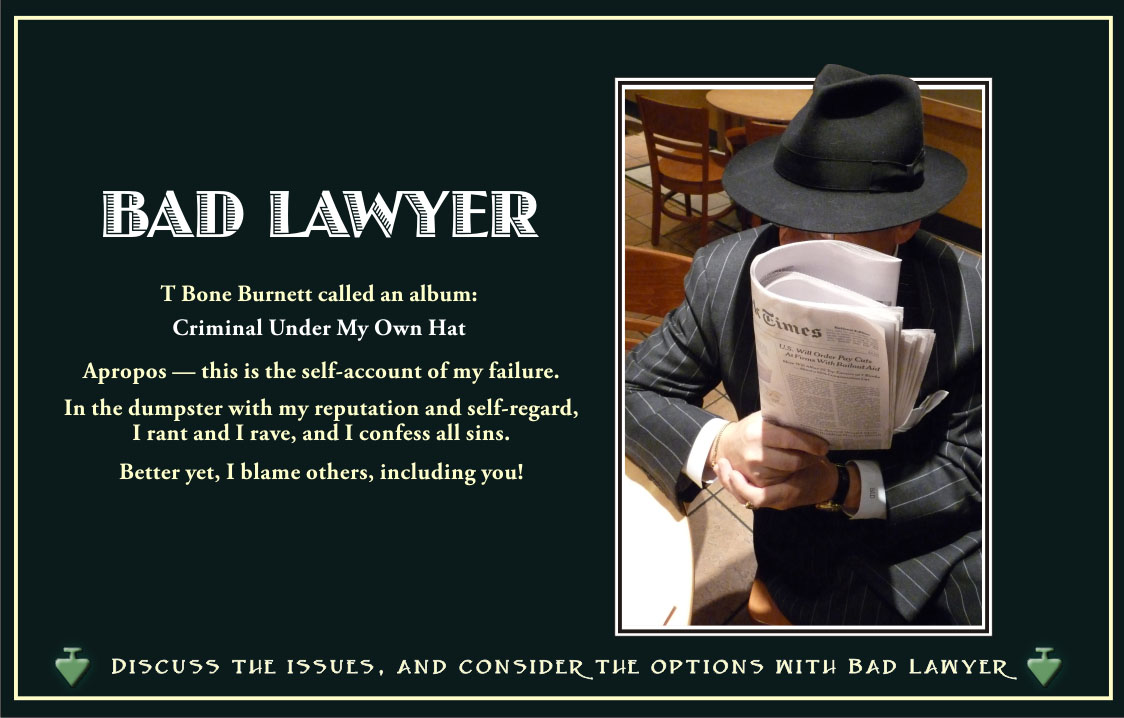Sunday, April 17, 2011
MSNBC's "Locked Up"
One of the odder sensations I experienced was the morning I walked into the "day room" at my FCI Morgantown housing unit and watched inmates watching inmates on MSNBC's Locked Up documentary program. On the television screen an inmate was cutting up some sort of food preparation derived from food stolen from the prison mess hall and combined with ingredients purchased from the prison commissary. The television inmate preparing food was using exactly the same sort of microwave bowls and utensils hand-improvised and, or available to Morgantown inmates. I felt dizzy.
In the event that you've not seen Locked Up I've posted a clip of the program from the Kern Valley Prison-episode. The Kern Valley prison is a world apart from Morgantown which is ostensibly a minimum security "camp," in also located in a valley surrounded by woods in the mountains West Virginia. But the MSNBC documentary does not depart in any substantive respect in its scenes depicting inmates housed in something euphemistically called the "Special Housing Unit," or SHU (pronounced: the Shoe) also known as the HOLE. I, personally, spent 8 days in the stand-alone structure at Morgantown that housed the SHU after I witnessed AND reported a sexual attack on one inmate by another.
A day in the HOLE is 24 uninterrupted hours of sitting on your bunk or a slide-out stool connected to the wall. Me and my "bunkee" shared a stainless steel toilet and sink. Nice. Time, or rather my sense of time was governed by the delivery of food trays through a slot on the steel door and by what little reflect light I made out through a bullet proof rectangular window that looked out on a postage stamp "exercise yard" which itself was covered by a roof of razor wire. Food was so appalling that in 8 days I lost 5 pounds without the benefit of any exercise--it being January. Not knowing how long I would be thus entombed I was pretty depressed and angry.
Watching inmates watch inmates on the day room televisions makes sense when you bear in that by far the majority of all inmates have done time previously or were incarcerated in much more secure institutions prior to transfer to the camp setting. This "show" directly reflects past experience for a lot of my fellow inmates at Morgantown.
Personally, I was a member of the white-collar-criminal-elite that included dozens and dozens of professionals: physicians, dentists, pharmacists, lawyers, a judge, public officials, and financial types. And yet, by far the majority of the guys at Morgantown are or were drug dealers or men who on the street were involved in drug-related activities. This latter cohort own the prison in one important sense. We white collar types were living in their world. In my case, if they gave me any thought at all-- I was a mere visitor.
The MSNBC series does an excellent job of conveying a clear-eyed look at the modern prison industrial complex albeit, within certain states. At least that's what the inmates think. By the way, I asked some guys who were watching Law and Order reruns, one afternoon, if the experience of watching these shows and programs like COPS changed once they went to jail. The answer was "Hell Yes! Now I pull for the crooks!"
NOTE: I re-read the earlier version of this post. As bad as the current version is, it is at least revised for some grammatical infelicities that jumped out at me. My apologies.
Subscribe to:
Post Comments (Atom)




The Washington Post had an editorial today--an all-too-brief one--about the necessity for prison reform. We have more people locked up in this country than anywhere in the world. The fact that people like you, BL--non-violent, thoughtful people who are no risk to society--have had to undergo this ordeal points to a fundamental sickness at the heart of our society. Our capitalist society--because prisons are big business. Many people seem to think that most prisons are run by the government. This is not the case--the prison system is a for-profit business that employs a lot of people in areas where manufacturing and other industries have died. So it's in the interest of many, many communities to keep locking up as many people as possible. This is a moral crisis in our society, it seems to me, which is brought on by an economic one. When we stop using prisons to veil the economic breakdown of our society, maybe we can face some hard truths and start climbing out of the mess we're in. Locking up people for minor, non-violent offenses isn't doing anything but feeding a beast that's eating us all alive.
ReplyDeleteGayle--
ReplyDeleteYou hit the nail on the head, my friend. I think your comment inspired my post about Roger Pellmann, a Milwaukee, Wi physician who's paying an unbelievable price for trying to provide pain relief and therapy to one patient. It causes me psychic pain to think of him in custody.
BL